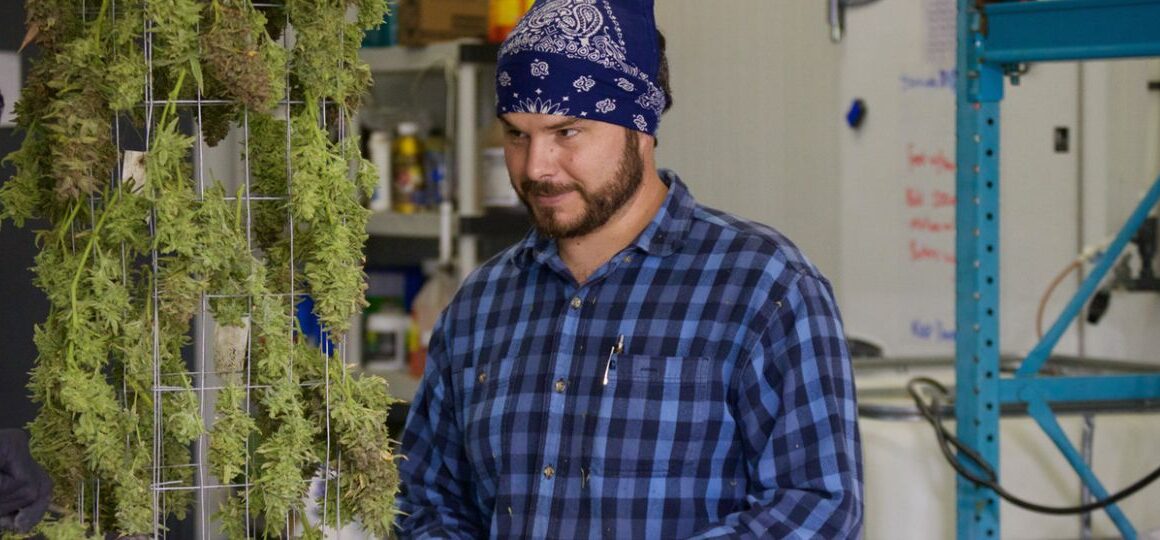If there’s one ancient thing in this world, it’s the fear of death. Hundreds of practices (more or less grounded in reality) have developed throughout all civilizations to delay our final breath, countless myths and legends from around the world describe heroes cheating the Grim Reaper, not to mention the hypotheses about what comes after, a staple of any religion. But today, the old religions are dying, giving way to another cult: technology. What stays the same is the fear.
That’s where Bryan Johnson comes in: a multimillionaire CEO and founder of several tech companies, who made his mark in the public eye with his outlandish anti-aging and biohacking initiatives. How outlandish, you ask? We’re talking about blood plasma transfusions courtesy of his teenage son (which ultimately didn’t work as intended, but grossed sizable publicity), dozens of pills a day (some sources claim over 100), strict diets, and a highly controlled and monitored lifestyle. When we say “highly monitored,” we don’t mean that lightly: the tycoon has said he analyzes his own feces and nocturnal erections daily, among other variables. Currently, Johnson is placing his bets on artificial intelligence that records everything he says, hoping that, as AI evolves, it might one day translate into immortality.
Of course, Johnson doesn’t keep all his practices to himself: he shares his lifestyle on social media and sells supplements through his company, Blueprint. It should be noted that the effectiveness and benefits of such supplements have been questioned on several occasions. He has also starred in his own Netflix documentary, where he recounts how he spent millions of dollars to reverse aging and claims to have “reversed his biological age by 5.1 years.” Thus, the tycoon has described himself as “the healthiest person on the planet.” The validity of such a bold claim depends on each person’s definition of “health.” For now, several health professionals have spoken out to contradict him.
And what is the goal of such gargantuan efforts? Johnson not only says it, he puts it on a t-shirt he wears all the time: DON’T DIE. Simple. The catchphrase appears constantly: on his socials, his website, his products. It’s even the title of his documentary. The billionaire is apparently convinced that death is not only controllable and avoidable, but also voluntary. The “where there’s a will, there’s a way” ideology taken to the max.
After years of measuring every measurable variable in the human body, of performing invasive and painful procedures (such as electric shocks and Botox injections in the penis to “improve” erections, which he readily recommends), many of which are not widely studied or validated in mainstream medical research, Bryan Johnson has decided to add another factor to his controversial equation for staying young: magic mushrooms.
Inside Bryan Johnson’s Experiment with Magic Mushrooms
First things first: true to his background as a Silicon Valley tech mogul, Bryan Johnson is no stranger to the wonderful world of psychedelics. The tycoon and former Mormon has shared his positive experiences with substances like LSD, ketamine, and 5-MeO-DMT on several occasions. What’s more, he’s even tattooed the molecular structure of the latter on his arm. Therefore, it’s not at all surprising that he’s chosen psilocybin as the subject of his latest experiments.
This time, the influencer shared his intentions on social media, detailing that he planned to take nearly 5 grams of psilocybin mushrooms once a month for three months. Of course, the journey would be accompanied by measuring every variable under the sun, including (but not limited to!) 249 independent biomarkers, with analyses of DNA, brain waves, urine, feces, saliva, semen, hormones, microbiota, metabolism, various organ functions, cellular aging… The list is extensive. He also clarified the safety conditions of his journey: under professional medical supervision and within a legal framework.
His goal? To explore the effects of psilocybin, the active component of magic mushrooms, on longevity.
It’s worth noting that 5 grams of magic mushrooms is generally considered a strong dose, aptly named “heroic dose” due to its intensity. So, how did Bryan Johnson fare taking a heroic dose of magic mushrooms?
Last week, he shared the details of his first trip in a series of tweets. Many of those were written by Kate Tolo, co-founder of Blueprint, as Johnson was in no condition to use a phone or write any kind of sentence. Tolo described the entrepreneur’s behavior after the dose, noting that he was calm and emphasizing that he was “having a REALLY lovely time,” amidst laughter, visual hallucinations, and bursts of empathy. He also spoke about “the universe and how we’re all one”: indeed, the feeling of oneness, of being one with everything, is among the most typical experiences during mushroom trips.
After the trip, Brian Johnson’s first tweet read: “I’m just so happy to be alive.” In subsequent tweets, he stated that the experience had changed him, and that he felt changes in his mind and emotions.
Later, more recovered, the biohacker poured his thoughts and analysis into another series of tweets, in great detail. He emphasized that the experience was positive, highly sensory, and rejuvenating. He also related it to his particular philosophy regarding death and the future of humanity, reflecting that “we are about to start waking up from a slumber that has hypnotized us into accepting death”.
Later, Johnson shared the potential benefits that psilocybin could have on longevity, inflammation, fertility, neuroplasticity, and the gut microbiota. His intention seems to be to experience these benefits firsthand, measuring every possible variable in the name of science. We’ll have to wait for the next two doses he has planned to draw any conclusions, but for now, the CEO’s ambitions seem to be going full steam ahead.
Editor’s note: It is important to note that psilocybin is not FDA-approved for longevity, and any potential health effects, positive or negative, remain the subject of preliminary research.
Mushrooms and the Illusion of Control
Brian Johnson says he isn’t afraid of death. That he has reconciled himself with it. Such a statement is bound to raise some eyebrows, considering not only all the superhuman efforts this man makes to avoid aging and dying, but also how he refers to death. Phrases like “people use death to shield from the disappointment of not experiencing the potential of life without the limitations of death” don’t exactly sound like someone who has found peace with their own mortality. Some observers have suggested that a desire for control might be a recurring theme in Johnson’s public persona, based on how he describes his routines and goals.
Some critics have interpreted Johnson’s intense self-monitoring as part of a broader pattern of seeking control; however, this interpretation is based on how his public statements and routines are portrayed in the media, not on any verified insight into his private relationships.
His public image is closely tied to his business ventures, and its management has been the subject of media coverage.
According to a New York Times investigation, several former employees said they were required to sign lengthy confidentiality agreements specifying what they could and could not disclose. The Times reported that these employees also said they were asked to affirm that they were comfortable with Johnson’s behavior—including clothing choices and personal discussions—and to agree in advance that such behavior was not “unwelcome, offensive, humiliating, hostile, triggering, unprofessional or abusive.”
The Times further reported that some employees felt declining these terms could jeopardize their jobs, and that several described feeling intimidated or pressured.
But why are we bringing all this up? Because one of the most interesting effects of entheogens, and mushrooms in particular, is the loosening of rigid mental mechanisms. Letting go of the ego, control, and one’s own beliefs is one of the most explored aspects by people who use mushrooms for personal growth and exploration. Many who consciously cultivate this practice feel their behavior soften, how harmful and rigid internal attitudes transform into more loving, empathetic, and flexible ones.
We do not know Bryan Johnson; we can only perceive a portrait based on newspaper articles and his own narrative, a fictional construct created around his persona. His profile is complex, like that of every person. But we dare suggest that taking entheogenic mushrooms might, in theory, help soften rigid control tendencies, from the possible (like his sleep schedule and calorie intake) to the impossible (the certainty that we will all die someday).
“Sometimes I think they’re right, that this has all gotten out of control and I need to calm down,” he says in one of his latest tweets. Could this be a sign of a profound change, the beginning of a softer, less rigid disposition? Only time, and perhaps the mushrooms, will tell.
Disclaimer: This article is based on publicly available information, such as Bryan Johnson’s public declarations, and journalistic investigations, including The New York Times. This article is for informational purposes and does not make factual claims beyond those sources, nor intend to pass judgment on the businessman’s personal life.
Cover photo by Katriece Ray for Kernel, CC0, via Wikimedia Commons (edited)





